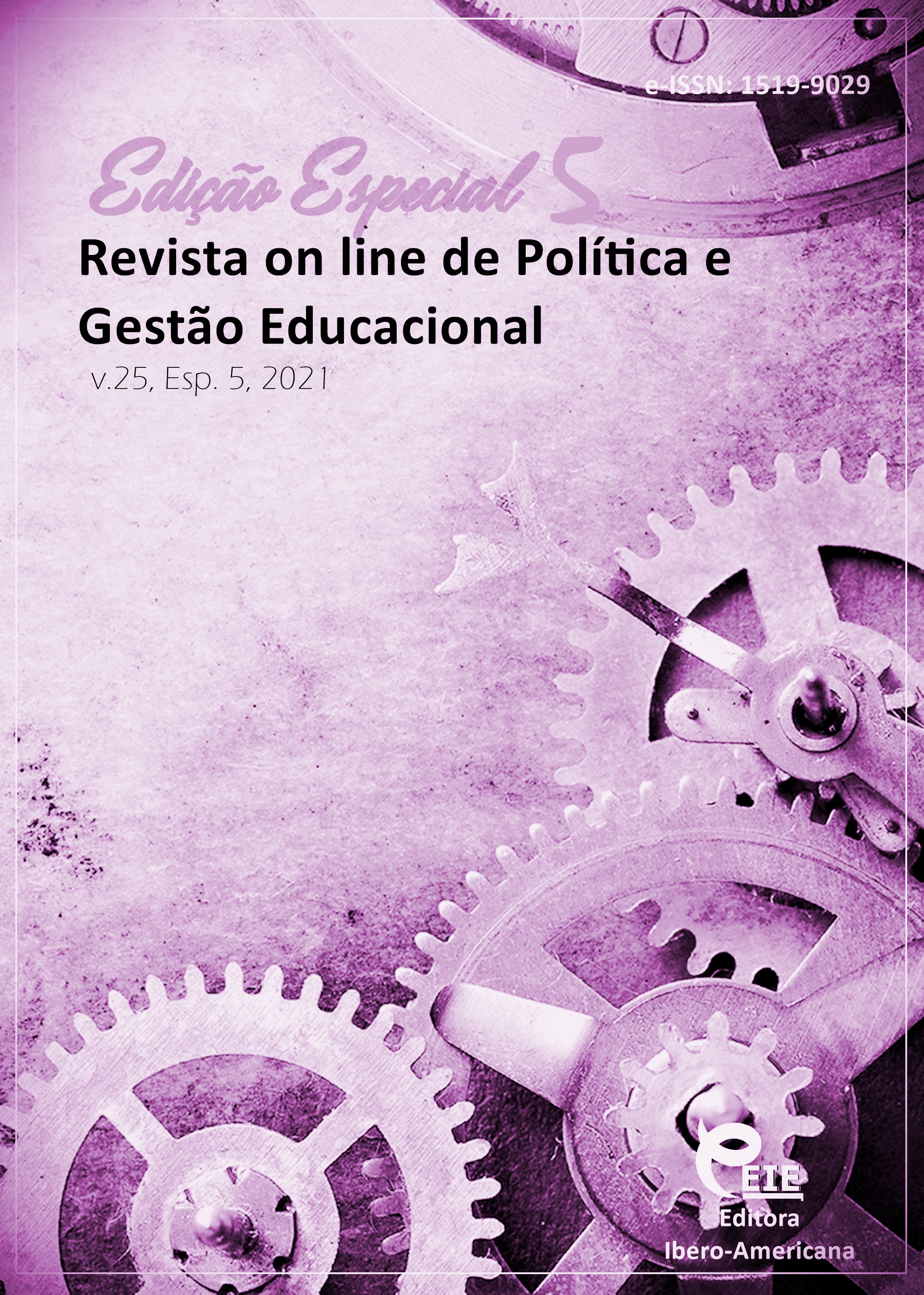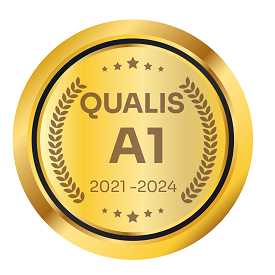Enseñanza modular de estudiantes de ruso a chino
DOI:
https://doi.org/10.22633/rpge.v25iesp.5.15998Palabras clave:
Aprendizaje, China, Estudiantes, EducaciónResumen
En este artículo, examinaremos las características de ese modelo de enseñanza a los estudiantes chinos, que se basa en dos componentes clave. Estas son las actitudes confucianas de una sociedad colectivista, que contribuyen a rasgos tan característicos como el respeto al maestro, la estructura social jerárquica y la importancia de salvar las apariencias. En segundo lugar, está la peculiaridad del sistema educativo chino, que se centra en realizar pruebas y memorizar las respuestas ya preparadas. En esta situación, es necesario tener en cuenta las particularidades del trabajo con estudiantes chinos. Este artículo analiza las estrategias de aprendizaje de los estudiantes chinos, así como los factores históricos, políticos, económicos y culturales en su formación. Los profesores de inglés deben prestar más atención al uso de métodos comunicativos en su trabajo para intensificar el aprendizaje.
Descargas
Citas
BEKHTER, А. А. Practices of training of foreign students in non-linguistic high School (example of practicing the disciple "foreign language (English)" At Penzen State University). LRC, v. 15, p. 206, 2018.
BOLDOVA, T. A.; TREGUBOVA, L. V. Study of Chinese students in Russian as a French language with the use of modular interactive works. New language. New Thinking, v. 789, 2020.
BORDOVSKAYA, N.V.; REAN, A.A. Pedagogy: Textbook. Saint Petersburg: Publishing House Peter, 2021.
GERBIK, L. F. Teaching Chinese students the Russian language taking into account the recommendations and remarks of Chinese teachers. Minsk: Belarusian House of Press, 2013.
GORSHKOVA, O. O. Methodological organization of practical-modular training process. Perspectives of Higher Education Development, p. 57-62, 2020.
ILYIN, G. Innovations in education. Moscow: Litres, 2021.
JING, Ch. On teaching listening to Russian speech at the initial stage in Chinese universities. Current Pedagogical Education, n. 4, 2020.
KALASHNIKOVA, M. A. Modulno-competent learning as a phenomenon of professional education. Russian-Chinese scientific journal "Sodruzhestvo" Monthly scientific journal, v. 4, n. 4, p. 42, 2016.
KALINICHENKO, M. V. Development of the education system in China. In: Law and politics: Theoretical and Practical Problems. 2017. p. 85-88.
KECHIMOVA, S. F. On the use of innovative methodology of Chinese language training. In: Problems and prospects of multilevel language training in a multicultural society. 2017. p. 106-114.
KOVALEVA, Y. modular program of teaching English language to students of technical university. Bulletin of South Ural State Humanitarian-Pedagogical University, v. 11, 2010.
LIANG, C.; BOLDOVA, T. A. Teaching Russian as a foreign language through a module. In: Questions of Theory and Practice of Teaching Russian as a Foreign Language. 2020. p. 446-450.
LUTFULLAEV, G. U.; LUTFULLAEV, U. L.; KOBILOVA, S. H. The experience of distance learning in the COVID-19 pandemic. Problems of Pedagogy, v. 4, n. 49, 2020.
MAKARENKO, L. A. Traditional and modular treatment of chinese hieroglific influence: A comparative aspect. Innovative Technologies in Education, n. 2, p. 93-97, 2020.
PETROVA, L. G. Technology of modular training of Chinese students in the formation of the grammatical side of speech in Russian: Experience and prospects. Belgorod: IPC POLITERRA, 2020.
POZDNYAKOVA, A. A.; CHEPKOVA, T. P. Module "Fundamentals of Russian spelling" in the system of teaching foreign students-philologists language of specialty. Dynamics of language and cultural processes in modern Russia, n. 6, p. 1651-1656, 2018.
WANQI, L.; BOLOTOVA, E. L. Management Of Collective Educational Programmes. Pedagogics: The Experience Of Chinese Heis. Educator XXI Century, n. 2-1, p. 11-29, 2021.
Publicado
Cómo citar
Número
Sección
Licencia
Derechos de autor 2021 Revista on line de Política e Gestão Educacional

Esta obra está bajo una licencia internacional Creative Commons Atribución-NoComercial-CompartirIgual 4.0.
Manuscritos aceitos e publicados são de propriedade da Revista on line de Política e Gestão Educacional. É vedada a submissão integral ou parcial do manuscrito a qualquer outro periódico. A responsabilidade do conteúdo dos artigos é exclusiva dos autores. É vedada a tradução para outro idioma sem a autorização escrita do Editor ouvida a Comissão Editorial Científica.











